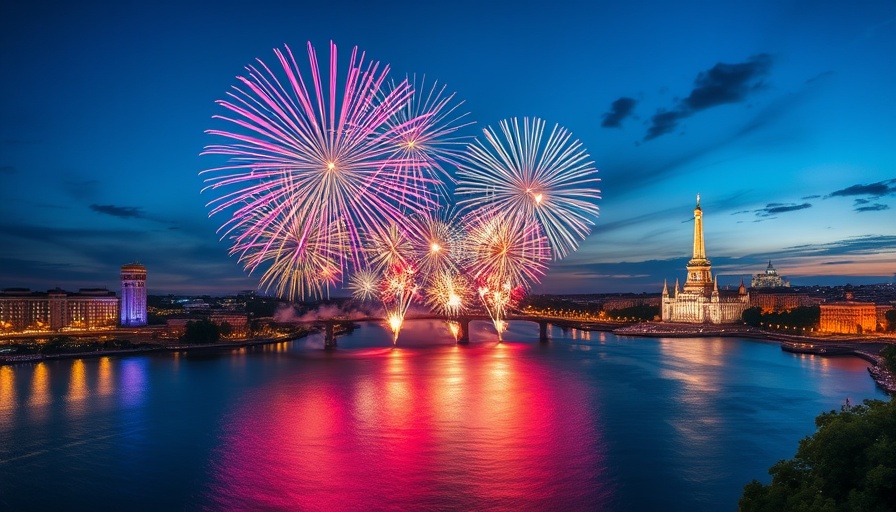
Understanding Fireworks Legality Across the U.S.
As summer descends and Fourth of July celebrations approach, many families are gearing up for festivities filled with fireworks. However, knowing the regulations surrounding fireworks is crucial, as they vary significantly from state to state. The American Pyrotechnics Association (APA) provides a detailed map to clarify these differences, offering an easy reference to ensure you enjoy your celebrations without running afoul of the law.
Which States Allow Fireworks?
Interestingly, only one state in the U.S. outright bans consumer fireworks: Massachusetts. In contrast, 49 states and Washington, D.C., permit them in various forms. States like Ohio allow the sale of consumer fireworks year-round, while California restricts this to a limited window from June 28 to July 6. This inconsistency underlines the importance of checking local regulations, especially for those planning a major firework display.
Highlights of State Regulations
According to the APA, the following states allow “some or all types of consumer fireworks” permitted under federal regulations:
- Alabama
- Texas
- Florida
- Colorado
- Arizona
Each state enforces its own set of guidelines about the specific types of fireworks that are permitted, and when they can be used. This includes usage times and restrictions on certain products. Therefore, it’s essential to stay informed about your local laws to ensure a safe and enjoyable experience.
States with Limited Firework Options
In difficult areas, Illinois and Vermont restrict fireworks to novelty items like sparklers. These limitations aim to prevent accidents and injuries that can result from more powerful fireworks. As fireworks can be dangerous if not handled correctly, these regulations are crucial for public safety, especially during high-traffic holiday periods.
Why Knowing the Rules Matters
Fireworks are a significant part of American summer traditions, but being unaware of the legalities can lead to fines or even criminal charges. If you're in Massachusetts, for instance, not only are you prohibited from possessing fireworks, but purchasing them legally in another state would be illegal as well. This strict regulation serves as a reminder to prioritize safety and legal compliance, reinforcing responsible celebrating.
Plan Your Fireworks Enjoyment
As community events and personal fireworks displays become more popular, understanding your state’s fireworks laws becomes vital. Engaging in fireworks responsibly makes your Fourth of July memorable and safe. Check the APA's state directory for comprehensive rules, and never hesitate to ask local authorities for clarification. Knowledge is the best spark for a great celebration!
 Add Row
Add Row  Add
Add 




Write A Comment